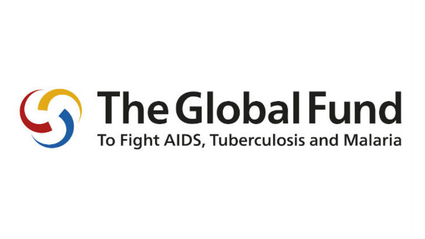9 January 2023
The Global Fund to fight AIDS, TB and Malaria (GFATM) policies now enable countries to request resources to support viral hepatitis, harm reduction and triple elimination services. The new funding cycle will prioritise hepatitis services among people living with HIV, key populations (including people who use drugs), and pregnant women. A new toolkit has been developed to assist countries in finding and applying for opportunities.
 Developed by Clinton Health Access Initiative together with partners like the World Hepatitis Alliance, World Health Organization, and The Hepatitis Fund, this toolkit aims to equip a wide range of stakeholders (including, but not limited to, Ministry of Health, partners and civil society) with the intel and tools to understand the GFATM hepatitis-related policies and support advocacy efforts for hepatitis services within this next round of funding requests in 2023.
Developed by Clinton Health Access Initiative together with partners like the World Hepatitis Alliance, World Health Organization, and The Hepatitis Fund, this toolkit aims to equip a wide range of stakeholders (including, but not limited to, Ministry of Health, partners and civil society) with the intel and tools to understand the GFATM hepatitis-related policies and support advocacy efforts for hepatitis services within this next round of funding requests in 2023.
It includes:
- A detailed summary of the evolution of GFATM hepatitis-related policies and specific guidance for this 2023-2025 funding round
- Several Country Case Studies highlighting countries that have been successful in this process
- Tools to support advocacy and funding requests like the rationale for making hepatitis-related investments, cost-effectiveness rationale, a summary of pricing for HBV and HCV commodities, generic advocacy work plan and activities checklist that can be customized to country settings..and much more!
- Additionally, the World Hepatitis Alliance has developed a short brief for advocates to complement the more detailed toolkit
Download toolkit
World Hepatitis Alliance Webinar
Summary of GFATM Policy
GFATM HIV policy scope for supporting countries to deliver hepatitis programing has evolved to recognise the need to address hepatitis co-infection by integrating viral hepatitis prevention, diagnosis, and treatment into multiple service settings. This includes:
- For people living with HIV and all key populations regardless of HIV status via HIV prevention and treatment services, sexual reproductive health services and harm reduction services:
- Screening, testing and treatment for hepatitis B and hepatitis C, vaccination for hepatitis B
- For people who inject drugs and people in prisons and closed settings, HBV and HCV services to be delivered as part of comprehensive harm reduction services
- For pregnant women via antenatal care services – preventing vertical transmission of HBV as part of a triple elimination approach:
- HIV, syphilis and hepatitis B testing during ANC visit
- HBV viral load confirmatory testing
- HBV prophylaxis treatment
- Programmatic investments to support the delivery of hepatitis b birth dose vaccine
- For harm reduction programming:
- Harm reduction is now an HIV ‘program essential’ – meaning all countries must describe the status of their harm reduction programs for people who inject drugs in their funding requests and those countries classified as high impact must describe their plan for full implementation. Top priority harm reduction interventions are needle and syringe programming, opioid substitution therapy and naloxone for overdose
- For NFM4, the Global Fund will fund hepatitis B and C treatment for people who inject drugs regardless of HIV status if strong epidemiological case and part of comprehensive HIV programming
- Funding requests can include programs for people who use drugs and their sexual partners, rather than only people who inject drugs. This allows increased scope for stimulant harm reduction
Opportunity for Hepatitis Programming
Considering limited funding for hepatitis programs, this next GFATM funding round will be a critical opportunity for countries to request GFATM funding to introduce and/or strengthen hepatitis programs, utilising existing service delivery platforms (HIV, harm reduction, ANC, and primary care).
Countries interested in leveraging GFATM funding for hepatitis programming must evaluate and define a funding ask that is appropriate for their context and informed by:
- epidemiology, programmatic needs and priorities and potential impact and rationale; and explain how these investments can help improve outcomes for people living with HIV, articulate program readiness, and plan for integration and implementation
Intentional stakeholder coordination and engagement will be needed for successful outcomes.

